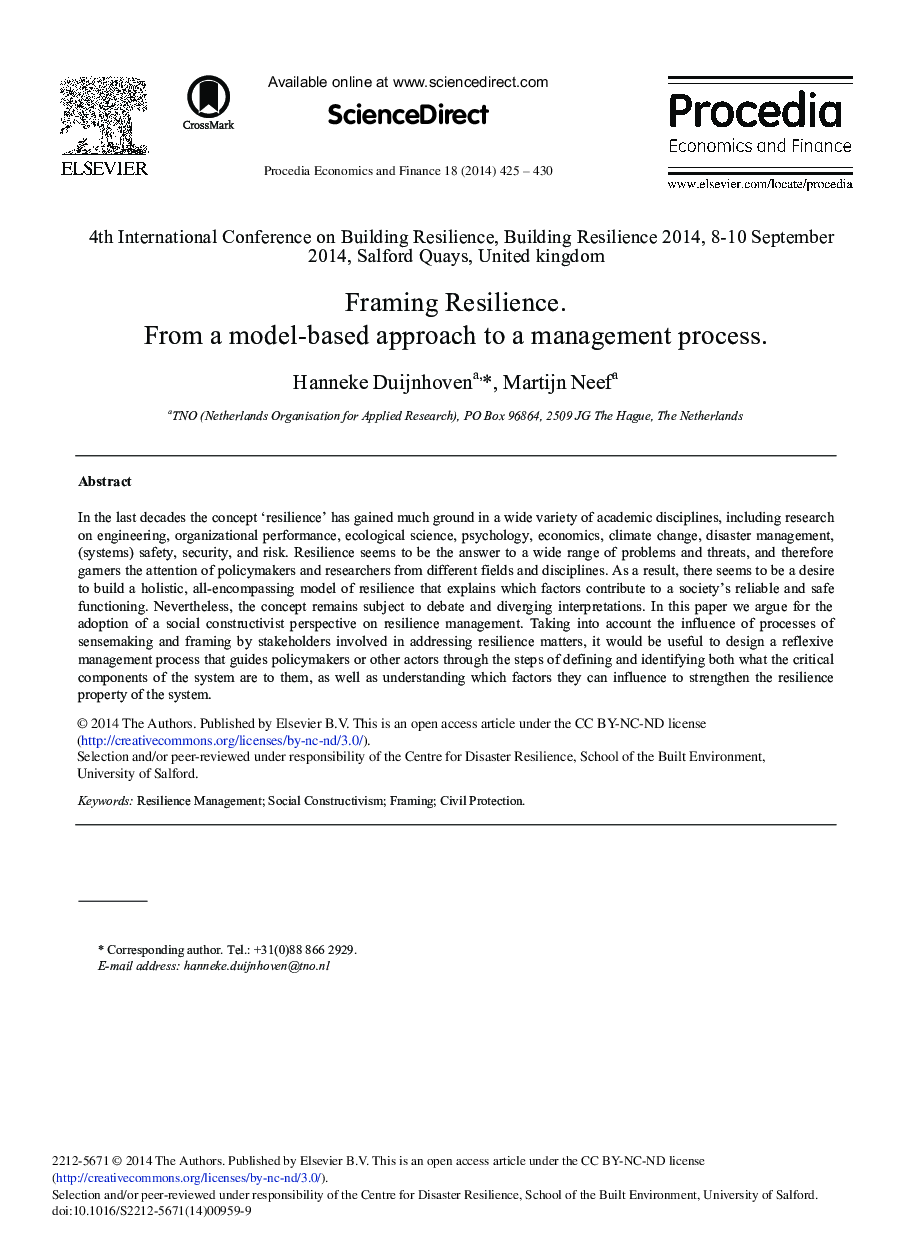| Article ID | Journal | Published Year | Pages | File Type |
|---|---|---|---|---|
| 981523 | Procedia Economics and Finance | 2014 | 6 Pages |
In the last decades the concept ‘resilience’ has gained much ground in a wide variety of academic disciplines, including research on engineering, organizational performance, ecological science, psychology, economics, climate change, disaster management, (systems safety, security, and risk. Resilience seems to be the answer to a wide range of problems and threats, and therefore garners the attention of policymakers and researchers from different fields and disciplines. As a result, there seems to be a desire to build a holistic, all-encompassing model of resilience that explains which factors contribute to a society's reliable and safe functioning. Nevertheless, the concept remains subject to debate and diverging interpretations. In this paper we argue for the adoption of a social constructivist perspective on resilience management. Taking into account the influence of processes of sensemaking and framing by stakeholders involved in addressing resilience matters, it would be useful to design a reflexive management process that guides policymakers or other actors through the steps of defining and identifying both what the critical components of the system are to them, as well as understanding which factors they can influence to strengthen the resilience property of the system.
